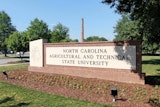The National Action Council for Minorities in Engineering (NACME) is challenging educators, business leaders and government officials to do more advocacy to increase the number of minority engineers.
Specifically, NACME is asking stakeholders to strengthen K-12 education, fortify alliances between high schools and universities, develop more scholarships to eliminate financial barriers and create more internships for undergraduate and graduate students, according to a symposium report released by NACME on Tuesday. NACME hosted its 2008 National Symposium this summer in Washington, D.C.
Data show that interest among American students of all races and ethnicities in the fields of science, technology, engineering and mathematics (STEM) has dissipated over the last several years. As a result, the pipeline of American engineers has dwindled, compromising American competitiveness in the global market. And amid economic crisis, the issue of American competitiveness has taken on new urgency.
“If the United States isn’t able to attract, recruit and retain more women and underrepresented minorities in STEM majors and related fields, we going to fail in our collective mission to keep the United State globally competitive,” said Niel Tebbano, vice president of operations for Project Lead The Way, an education advocacy organization.
The national retention-to-graduation rate of underrepresented minorities in engineering is 39 percent, compared to 62 percent for nonminority students. Blacks, Latinos and American Indians constitute 30 percent of the nation’s undergraduate students, yet only 12 percent of baccalaureate engineering graduates in the United States. Out of more than 68,000 bachelor’s degrees in engineering awarded to students in the United States in 2006, less than 8,500 were awarded to underrepresented minorities.
To offset the abysmal statistics, NACME is urging action. “NACME’s middle name is Action Council, and at its core, that is what this symposium was all about — taking action. As a wise man said, ‘knowing is not enough; we must apply. Being willing is not enough; we must do,” Dr. Irving Pressley McPhail, NACME’s executive vice president and COO, said this summer.
“Our education system needs a major overhauling of K-12 to help get students excited about the opportunities available in a STEM career,” says Norman R. Augustine, former chairman and CEO of Lockheed Martin. “We have to start by getting quality teachers into the classroom and paying them a competitive wage.”
Data show that one of the largest barriers to STEM success for underrepresented minorities is a lack of financial resources. But, if you remove financial barriers and provide support to students, they will perform, says Margaret Daniels Tyler, the senior program officer of the Gates Millennium Scholars Program, a philanthropic initiative in the field of education. “We are reaching the neediest students in this country, and they have the potential and the backgrounds to make a difference. We have 1,766 scholars pursuing STEM fields, and they have an average GPA of 3.37.”
In terms of business, NACME’s bottom line is “a work force that resembles America.” This aspiration cannot be met unless the skills pipeline is transformed, NACME officials say.
“We can’t expect colleges and universities to make dramatic changes overnight. Success demands open collaboration among academia, government and industry to transform how the skills pipeline get built. The gaps are wide between where we are and what we think ought to be possible. If we are to close those gaps, I believe that we must live and operate in a way that embraces integration over isolation,” says Nicholas Donofrio, executive vice president innovation and technology at IBM.
Email the editor: [email protected]
Click here to post and read comments
© Copyright 2005 by DiverseEducation.com


















